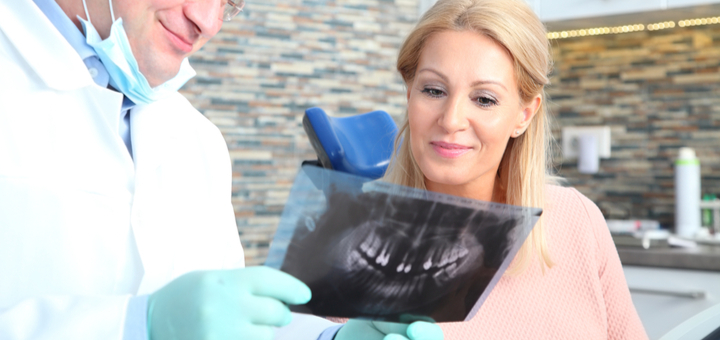Normal Tooth & Wisdom Tooth Extraction
While most older teens and some adults are required to get their wisdom teeth removed, there are many other reasons tooth extraction may be necessary as an adult. Tooth extraction may be necessary because of an excessive amount of tooth decay, uncured tooth infection, and overcrowding are all reasons teeth will be extracted. Sometimes people getting braces need one or two teeth removed in order to have room for the other teeth that will shift into place. Additionally, many of those who are enduring chemotherapy or are about to undergo an organ transplant may need teeth removed in order to make sure their mouths are healthy.
A dentist or an oral surgeon perform tooth extractions, which is a relatively quick procedure and can require either local, general, intravenous anesthesia, or a combination. Visible teeth are simple to extract, but those teeth that are broken, under the surface, or impacted will need a more complicated procedure.
At Foothill Dental Care, we have a team of experienced dentists in Livermore (oral surgeon) to perform tooth extractions, which is going to be a relatively quick procedure and can require either local, general, intravenous anesthesia, or a combination. Visible teeth are simple to extract, but those teeth that are broken, under the surface, or impacted will need a more complicated procedure.
Procedure for a tooth extraction
Your tooth extraction can either be simple quick or a bit longer if surgery is needed, depending on whether your tooth is visible or not.
- Simple extraction
You will receive a local anesthetic, which simply numbs the area around the tooth that needs to be removed, so the only thing you will feel is pressure, not pain, throughout the procedure. The dentist will then use an instrument called an elevator, which loosens the tooth, and forceps to remove it. Forceps, which are hinged tongs, is a tool that is used to remove teeth in one piece, with the crown and root undamaged.
- Surgical extraction
Wisdom tooth extraction is considered as a complicated dental case that may require a specialist or an oral surgeon to perform a surgical extraction. You more than likely receive both local anesthesia and intravenous anesthesia, the latter of which makes you calm and relaxed. You may additionally receive general anesthesia, depending on any medical conditions. General anesthesia means that you will be unconscious during the procedure.
Types of Anesthesia for Wisdom Teeth Extraction
To make you feel no pain during the removal, a dentist will give you one of these types of anesthesia:
- General: Typically, the anesthesia will be injected through a vein or breathing gas in through a mask. If you cannot handle your dental fear, a dentist may put you to sleep by using the most suitable method for your case.
- IV sedation: The oral surgeon will temporarily numb your mouth and inject drugs through a vein in your arm. This process will only make you feel a quick pinch for 1 second, then you will start to fell claim and relaxed. The good thing is that during the whole procedure, you might be put to sleep and wake up without realizing any pain at all.
- Local: Our dentists will numb your mouth by injecting Novocaine into your gums. In some cases, a patient with dental anxiety may ask for breathing nitrous oxide, or laughing gas instead if they have a fear of the needle.
After Tooth Extraction Tips
Newly whitened teeth may stain more easily. To keep your teeth white as long as possible, avoid tobacco and stain-causing food and drinks for several days after whitening. Keep in mind, teeth generally return to their original shade after. Staying steer clear of tobacco and large amounts of stain-causing food and drinks, your teeth may stay bright for several years.
When the treatment is complete, your doctor will educate you on what food and beverages you will need to avoid for the first 24 hours, usually ones with a high level of pigment. These include coffee, tea, anything with tomatoes, yellow mustard, beets, black grapes, candies, and red wine. Avoid smoking during this time as well.
Tooth Extraction with our Livermore Dentists

If you have to have a tooth extracted, whether from medical necessity or tooth decay, call Foothill Dental Care in Livermore at (925) 961-5484 to schedule an appointment. We can provide a FREE consultation and thorough dental exam to determine if extraction is the best solution for you.
Yes, most medical insurance plans will provide some degree of insurance coverage for dental extractions including wisdom and other tooth removals. However, some insurance may only basic dental service. Which means that you might have to partially pay out of your pocket around 20% of a total dental bill. Consult with our Livermore dentists to see if your plan cover tooth extraction.
In typical cases, a normal tooth extraction will recover in around 7-10 days. After this time, the gum tissue has healed, and your stitches are able to be removed. Within two weeks, smaller sockets should be fully healed.
After a tooth has been extracted, there is no reason a patient shouldn’t be able to return to normal activity. The soft tissue where the tooth was extracted should be fully healed in around 3-4 weeks. Though, if a patient has had a surgical extraction, where the tooth was still in the gums and jawbone is removed, the recovery process will be longer.
